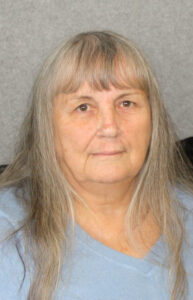Mental health nurses are concerned that the safety of people with mental distress, and their families, is being put at risk by police withdrawing from attending mental health call-outs.

Police have said they will be phasing out attendance at mental health call-outs over a year, starting in November. They say this will allow officers to focus on “core policing”.
Mental health nurses would like know whether the safety of people in the community is considered “core policing”.
Although there is a narrative of “freeing” police to attend other types of calls, the withdrawal of police services from mental health call-outs does appear, on the surface, to have the wellbeing of people experiencing mental distress at the core.
Discussing the changes, Te Whatu Ora – Health New Zealand has talked about “getting the balance right”, where police would continue to attend incidents where there was immediate risk to life and safety, but there would be other incidents where “a health-led response is more desirable”.
Mental health nurses would like know whether the safety of people in the community is considered ‘core policing’.
We are aware that this new policy is based on the Humberside “right care right person” model currently being rolled out across the United Kingdom (UK).
We agree with the principle of the Humberside model — that people experiencing mental health crises should be able to access the right care at the right time, by the right person, and in the right place. In most cases, this is unlikely to be the police, and people would be better supported by appropriately resourced specialist mental health services.
However, making the Humberside model work requires the mental health services to be in a healthy state.
This model depends on:
- Timely availability of mental health services, with highly qualified mental health staff who are able to rapidly assess and triage people in the community and remove them to a place of safety if necessary.
- Mental health services which are readily accessible to all those requiring assessment and treatment.
- A significantly larger mental health workforce –- primarily skilled clinicians, who are able to assess and triage to a high level, with exceptional de-escalation skills.
- Provision of statutory powers to registered mental health professionals, to provide them with the same access to service users as the police powers currently allow.
- Police presence only being provided if a crime is committed or if there is evidence of serious danger, eg presence of weapons.
The reality is, however, that rather than this new policy being introduced when the New Zealand mental health system is equipped to support it, it comes at a time when the system is in disarray.
We are critically short of mental health nurses and psychiatrists in both inpatient and community services, including crisis teams.
This shortage includes a lack of highly experienced clinicians -– who are required for assessment, triage and intervention in high-risk situations in the community.
Prediction of risk is a complex and specialised area of practice. The initial assessment of whether a mental health professional or a police response is required will be critical. Nurses are not trained or legally permitted to force entry into homes where an incident of self-harm or harm to others is in progress.
This shortage includes a lack of highly experienced clinicians -– who are required for assessment, triage and intervention in high-risk situations in the community.
Meanwhile, inpatient services are operating at more than 100 per cent capacity in many areas.
The Mental Health (Compulsory Assessment and Treatment) Act is undergoing repeal and replacement. The process of legislative change is being conducted with consideration of these changes to emergency responses. What are the community safety implications of such a change at the point of police disengagement for mental health related calls?
The alternatives to police involvement in the UK are:
- Specialist mental health ambulances.
- Co-response teams.
- Extra capacity for treating patients — expansion of inpatient and community services.
- Provision of safe places for assessing people in crisis instead of emergency departments and police cells. These are known in the UK as “136 suites” and are purpose-built as safe and therapeutic environments. They are fully staffed by mental health clinicians and support workers.
- “Crisis cafes”, where people struggling to cope can drop in for help.
However, in spite of UK mental health services receiving an extra £1 billion a year, there are still concerns that the system has not been set up adequately. Professional groups in the UK have sounded the following warnings, that New Zealand decision-makers should take heed of:
Royal College of Psychiatrists (2023): “It should not be taken as a green light for a unilateral discontinuation of police presence in mental health emergencies. Such a withdrawal poses a real danger to patients. The needs of people in crisis must be at the forefront of any action taken by all services and requires a fine balance of both policing and mental health services. We expect all policing, across all regions, to continue providing their vital services, as certain mental health emergencies, when people are in acute crisis, will always need a systems-wide approach.
“The fact is that there are certain legal powers only held by the police such as the power to convey a person in crisis from a public place to a place of safety, and so mental health is always going to be police business and they will always be needed in some form.”
Royal College of Nurses: Caution is required until the mental health nursing workforce is adequate.
Unite union (August 2023): Dave Munday, the lead professional officer for mental health at the union Unite, said: “Whilst the police may not always be the best people to respond to a mental health crisis, the decision to cut one million officer hours of support, to what is already a marginalised and disadvantaged group, without any plans to increase the availability of support elsewhere should cause us extreme concern. “
Mr Munday, who has a background in nursing, told Nursing Times that if local police stop intervening with mental health call-outs, it does not mean “other services will suddenly appear”. He said this was well-evidenced in the recently published NHS workforce plan, which highlighted that it would take several years to adequately resources mental health services.
NGO/charities: Marjorie Wallace, founder and chief executive of mental health charity SANE, said: “SANE fears the impact the significant reduction in police callouts will have on people in mental distress, their families, friends and the public, who are going to be left without anyone to turn to when they face mental health crisis.”
Dr Sarah Hughes, chief executive of Mind, said (2023): “The way this decision has been framed is deeply worrying and sends completely the wrong message to the public and to local police forces. One in four of us has a mental health problem. This decision has the potential to affect any of us. Above all, at the heart of any decision like this should be the people that the police serve, not the potential hours of work saved.”
Rethink Mental Illness (March 2024): Ministers should order police forces in England to keep attending mental health calls until more funding is in place for the NHS to plug the gap or risk further deaths, a charity is urging. Rethink Mental Illness has written to the home and health secretaries asking them to immediately pause the right-care-right-person scheme, which allows police forces to step back from responding to mental health callouts, after “a series of tragic deaths” associated with the change.
Helen Garrick, RN, ADN, BA (Psych), PGDip (Psych), is chair of the NZNO – Tōpūtanga Tapuhi Kaitiaki o Aotearoa mental health nurses section.



